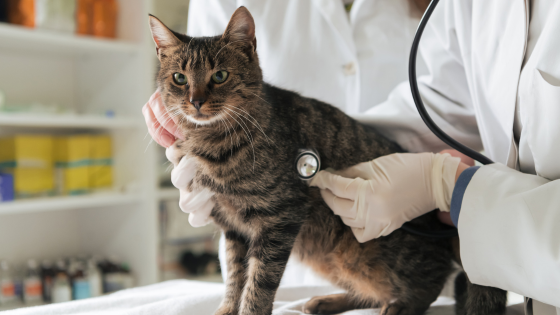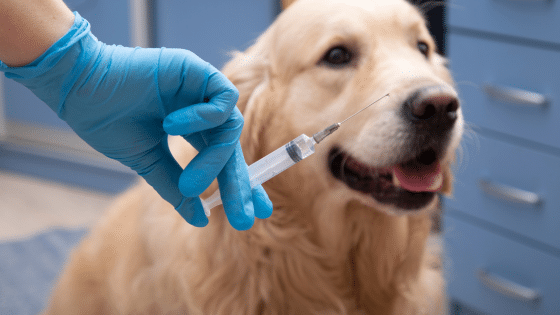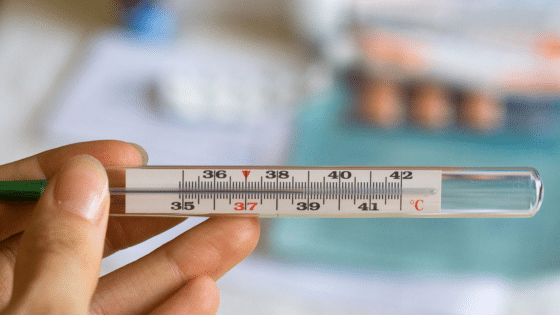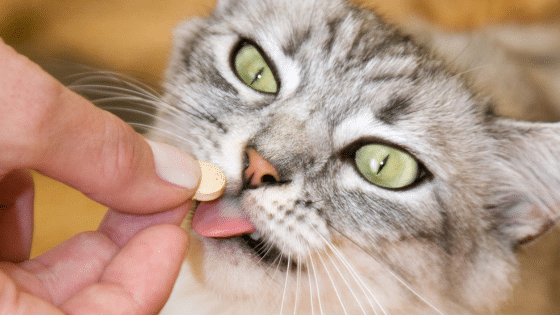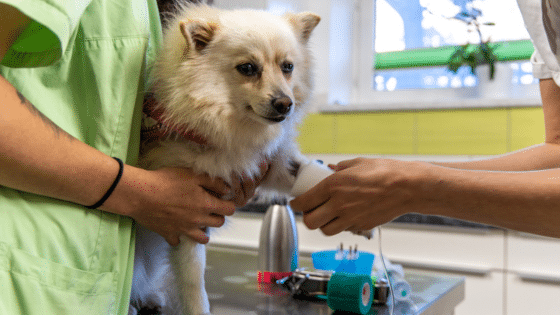Hunde und Katzen verantwortungsvoll entwurmen und schützen
Egal, ob Sommer oder Winter – der Schutz vor Parasiten ist für Hunde und Katzen mit Freigang von größter Bedeutung.
Eine regelmäßige Entwurmung mindestens viermal im Jahr ist unerlässlich, um dein Tier vor gesundheitlichen Risiken zu schützen.
Während der warmen Jahreszeit von ca. April bis Oktober sollte das Tier gegen Zecken geschützt werden.
4 x / year
DESTROY
April - October
TICK & FLEA PROTECTION </>
Entwurmung und Schutz vor Parasiten
Entwurmung im Winter: Im Winter genügt eine Wurmtablette oder ein Spot-on-Präparat für den Nacken. Diese Maßnahmen helfen, das Risiko einer Wurminfektion zu minimieren.
Entwurmung von April bis Oktober: In der warmen Jahreszeit empfiehlt sich eine Kombination aus Wurm- und Schutzmitteln gegen Zecken und Flöhe. Während dieser Zeit sind Vierbeiner besonders anfällig für Parasiten, und eine präventive Vorgehensweise ist wichtig.
Zecken- und Flohschutz
Wirkungsdauer: Die Wirkung von Zecken- und Flohschutzmitteln hält etwa 4-6 Wochen an. Daher solltest du diese Behandlung regelmäßig wiederholen.
Schnelle Wirkung: Wenn eine Zecke zubeißt, nimmt sie den Wirkstoff während ihrer Blutmahlzeit auf und wird innerhalb einer Stunde abgetötet. Dies schützt dein Haustier vor den potenziell schweren Krankheiten, die von Zecken übertragen werden können, wie z.B. Anaplasmose.
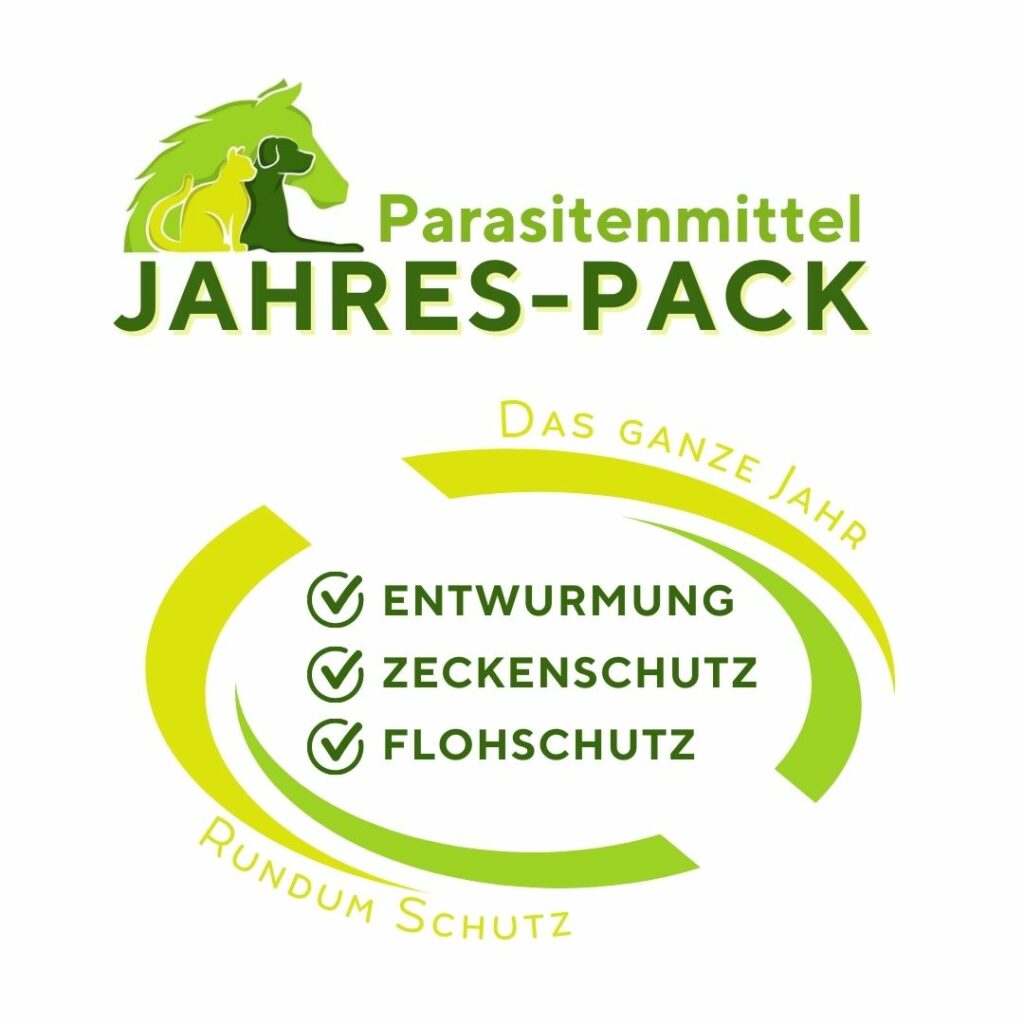
All-round protection for the whole year
In our practice, you will receive a complete annual package of parasite remedies for your pet adapted to the specific needs of your dog and cat.
10% off the total price and free annual plan
Vorsicht bei Halsbändern und langwirksamen Mitteln
Halsbänder: Wir raten von der Verwendung von Halsbändern gegen Zecken und Flöhe ab. Diese können zu Verletzungen führen, insbesondere bei Katzen, die sich im Spiel verfangen.
Zudem können Halsbänder Hautreizungen verursachen und der Wirkstoff könnte vom Besitzer über die Haut aufgenommen werden.
Langwirksame Antiparasitika: Obwohl sie in der Regel gut verträglich sind, sollten langwirksame Antiparasitika vorsichtig angewendet werden. Bei Unverträglichkeiten können Nebenwirkungen mehrere Monate anhalten, abhängig von der Wirkungsdauer des Medikaments.
Zusätzliche Tipps für Tierhalter
Regelmäßige Kontrollen: Überprüfe dein Haustier regelmäßig auf Zecken und Flöhe, vor allem nach Spaziergängen in der Natur.
Tierarztbesuche: Sprich mit uns, um den besten Plan für die Entwurmung und den Schutz vor Parasiten für dein Haustier zu erstellen. Wir können dir die besten Produkte für die spezifischen Bedürfnisse deines Vierbeiners empfehlen.
Gesunde Lebensweise: Achte auf eine gesunde Ernährung und ausreichend Bewegung deines Tiere. Dies stärkt ihr Immunsystem und kann helfen, das Risiko von Parasitenbefall zu reduzieren.
Alternative Methoden: Wenn man die Medikamente auf ein Minimum reduzieren will, dann kann man alternativ regelmäßig eine Kotprobe bei uns auf Würmer untersuchen lassen. Bei positivem Befund ist allerdings eine medikamentöse Entwurmung unumgänglich.
Zur Zeckenprophylaxe gibt es keine wirklich wirkungsvollen natürlichen Alternativen.
Conclusion
Ein verantwortungsbewusster Umgang mit Parasiten bei Hunden und Katzen ist entscheidend für die Gesundheit deines Tieres.
Mit der richtigen Entwurmung und einem effektiven Schutz gegen Zecken und Flöhe sorgst du dafür, dass dein Vierbeiner ein glückliches und gesundes Leben führen kann.
Wie oft muss ich mein Tier entwurmen?
In einem kurzen Video erläutert die ESCCAP (European Scientific Counsel Companion Animal Parasites), wie sich Hund und Katze mit Würmern anstecken können und wie du deinen Vierbeiner sachgerecht schützen kannst.

By loading the video, you agree to YouTube's privacy policy.
Learn more
Hast du weitere Fragen? Wir sind gerne für dich da!
Wir freuen uns auch jederzeit über einen Besuch!

Giardien beim Hund - Wichtige Informationen für Hundebesitzer
Hier noch mehr Infos zum Thema

Kokosöl als Zeckenschutz für Hunde: Fakten und Empfehlungen
Hier noch mehr Infos zum Thema

Reisekrankheiten beim Hund - Herzwurm und Leishmaniose
Hier noch mehr Infos zum Thema







